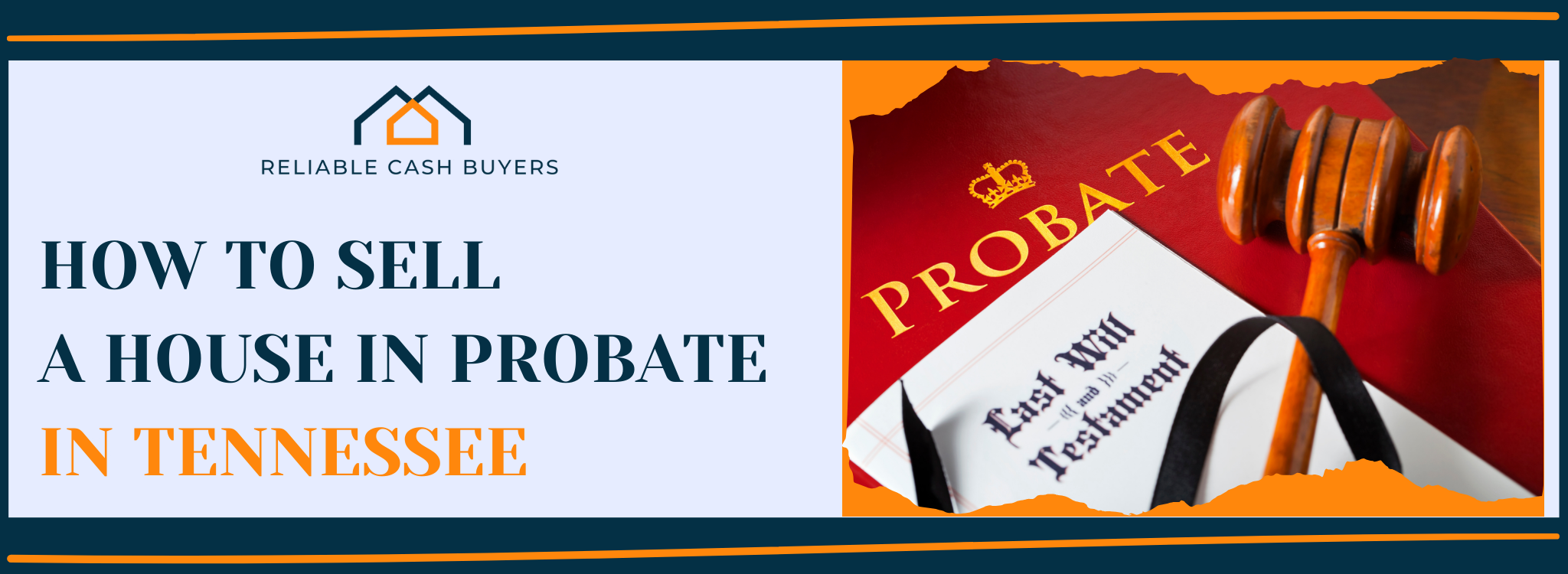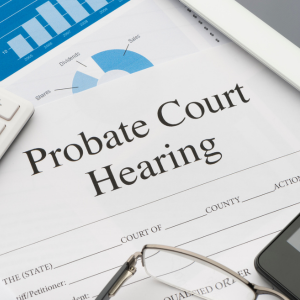
What Are the Steps to Selling a House in Probate in Tennessee?

To sell a Tennessee house in probate, you must take a few important steps. Being aware of every step in the process can help it go more smoothly for everyone:
- Appointment of an Executor: First, the probate court must officially appoint the estate executor. This person manages estate matters, including selling the house in probate.
- Inventory and Appraisal: After an appointment, the executor must inventory the estate’s assets and get an appraisal to determine the property’s market value.
- Court Approval: The executor must get approval from the TN probate court before listing the property. This step is necessary to ensure all actions meet legal standards and respect beneficiaries’ interests.
- Listing the Property: With court approval, the executor can list the house using a real estate professional who knows probate real estate in Tennessee. Proper listing and marketing help attract buyers.
- Negotiation and Sale: Once offers come in, the executor, sometimes with probate court input, negotiates terms and finalizes the sale. Compliance with TN probate court procedures is important throughout this stage.
- Distribution of Proceeds: After the sale, proceeds are used to pay debts and taxes. Any remaining funds are distributed to beneficiaries as stated in the will or by state law.
For detailed assistance, contact Reliable Cash Buyers to guide you through selling a house in probate in Tennessee.
How Does an Executor Initiate the Sale Process?
The executor plays a crucial role in managing the sale of a probate house. Here’s how they start the process:
- File a Petition: The executor submits a petition to the probate court to be officially recognized and begin the sale process.
- Obtain Letters Testamentary: These documents allow the executor to act on behalf of the estate, and they are essential for tasks like signing contracts and distributing assets.
- Assess Estate Needs: The executor evaluates whether the estate needs to liquidate assets quickly, which helps prioritize listing a probate house in TN.
- Collaborate with Professionals: Executors often work with probate real estate professionals to ensure effective property listing and marketing.
- Prepare for Sale: This includes addressing repairs, staging the home if needed, and gathering documents such as the deed and proof of ownership.
What Documents Are Required for Probate House Sales?
To sell probate real estate in Tennessee, having the right documentation is key:
- Probate Legal Forms: Include petitions to the court, Letters Testamentary, and other forms needed for legal proceedings.
- Deed and Ownership Proof: Ensure the deed shows the correct ownership. An affidavit might be needed to confirm rightful ownership.
- TN Probate Listing Agreement: This agreement formalizes the arrangement between the executor and the real estate professional handling the property sale.
- Appraisal and Inventory Lists: Official records of the property’s appraised value and estate inventory are vital for transparency.
Consulting with Reliable Cash Buyers can simplify obtaining and organizing these documents efficiently.
How Does Local Knowledge Impact the Sale?
Local expertise is a major asset in probate sales. Here’s how it impacts the sale:
- Understanding Market Dynamics: Knowing the Tennessee housing market allows for accurate property valuation and competitive pricing.
- Neighborhood Insights: Awareness of local neighborhoods helps highlight attractive features to potential buyers.
- Regulatory Guidelines: Familiarity with state and local regulations ensures that every step of the TN real estate probate sales process meets legal expectations.
Using professionals with local knowledge can greatly improve the outcome of selling your probate real estate in Tennessee.
How Do Probate Laws in Tennessee Affect Home Sales?
Probate laws in Tennessee play a significant part in selling a home after the owner has passed away. When this happens, the estate—including real estate—must go through probate, which is the legal process of managing the deceased’s estate. The Tennessee probate court oversees how the estate’s assets are distributed and ensures all debts get paid. These steps can influence the speed and ease of a home sale.
Finding professionals who understand the specifics of probate real estate in Tennessee is important. They can help guide you through estate administration rules and ensure you follow the local laws correctly. Reliable Cash Buyers are experts who can assist in managing these legal matters.
What Are Key Probate Court Requirements?
Knowing the key requirements of the probate court is important for a smooth transaction. Here’s what you often need to do:
- Filing the Petition: Start probate by filing a petition at the court. This includes submitting the deceased’s will, if there is one.
- Notifying Heirs and Creditors: Inform all relevant parties, such as heirs and creditors, about the probate process.
- Inventory and Appraisal: List the deceased’s assets and get an appraisal for real estate if needed.
- Settlement of Debts and Taxes: Pay off debts and taxes before handing out assets.
- Distribution Order: Distribute property according to the will or state laws if there’s no will.
Understanding these legal steps helps avoid unnecessary delays in probate sales.
How Can Probate Delays Be Managed or Avoided?

Probate delays can slow down property sales. To manage or avoid these delays in Tennessee, consider these tips:
- Early Planning: Work with professionals skilled in TN probate sales and estate management.
- Clear Documentation: Prepare and submit all documents accurately to prevent setbacks.
- Efficient Communication: Keep open communication with the probate court and all involved parties to quickly handle issues.
- Utilize Professional Services: Use services from firms like Reliable Cash Buyers to manage the probate process effectively for a smoother sale.
Good probate process management can lead to quicker resolutions and less stress from potential delays.
What Costs Are Involved in Selling a Probate Property?
Understanding the costs of selling a probate property aids in planning for estate settlement. Common probate property costs include:
- Court Fees: Charges for filing the probate case and other court-related fees.
- Legal Fees: Costs for attorneys specializing in probate sales vary by complexity.
- Appraisal Costs: Fees for appraisals that assess the property’s market value are often required in probate.
- Agent Commissions: Payments to real estate professionals when listing the property are part of probate sale expenses.
- Maintenance and Repairs: The costs for ongoing maintenance and any necessary repairs before selling will add to the estate settlement cost.
A TN probate listing agreement can clarify roles and fee structures to help manage expectations.
Are There Any Hidden Fees in Probate Sales?
Hidden fees can sometimes complicate probate sales. Here’s how to spot and handle them:
- Itemized Statements: Ask your attorney or probate expert for detailed billing to find hidden charges.
- Understand TN Probate Court Rules: Learn local rules to identify fees that might not be obvious.
- Professional Consultation: Working with experts can help you foresee and avoid unexpected costs, ensuring transparency.
Always confirm potential expenses with trustworthy sources and professionals to minimize surprise fees.
Who Pays for Repairs and Upkeep During Probate?
Deciding who covers repairs and upkeep during probate is key to managing the estate. Here’s how it usually works:
- Estate’s Responsibility: The estate generally pays for maintenance and repair costs until probate ends.
- Executor Duties: The executor is typically responsible for keeping the property in good shape to protect its value.
- Property Maintenance During Probate: Plan routine maintenance and necessary repairs to keep the property attractive to buyers.
Understanding these responsibilities helps maintain the property’s value and facilitates a successful sale. Reliable Cash Buyers can provide expert guidance for assistance.
Can a House in Probate Be Sold As-Is in Tennessee?

Yes, in Tennessee, a house in probate can be sold as-is. There are legal steps involved, but selling without making repairs is possible. This approach benefits heirs who want to convert the inherited property into cash quickly. To sell a house in probate in Tennessee, familiarize yourself with specific probate home sale requirements. This typically involves court approval and notifying all involved parties, such as heirs and creditors.
What Are the Benefits of Selling As-Is?
Selling a probate property as-is offers several advantages:
- Speed: You can sell quickly since no repairs or renovations are required.
- Cost Savings: Avoiding repairs saves money and keeps more funds within the estate.
- Buyer Attraction: Cash buyers often favor as-is sales for faster transactions.
To sell probate property as-is, consult a real estate professional familiar with Tennessee probate laws. They can help you effectively price probate property in TN, attract potential buyers, and ensure compliance with legal obligations.
How Can an As-Is Sale Impact Market Value?
Selling a house in probate as-is can influence its market value. Such properties might have a lower listing price compared to renovated homes. Market value is affected by:
- Condition: The property’s state and repairs are needed.
- Market Trends: Stay informed about Tennessee probate market trends to understand demand.
- Buyer Types: Cash buyers or investors might prefer as-is homes.
Work with a real estate professional experienced in Tennessee probate real estate to see how these factors apply to your property.
What Role Do Heirs Play in the Probate Sale Process?
In Tennessee, heirs have a key role in the probate sale process. As beneficiaries, they can:
- Provide Consent: Approve the property sale.
- Receive Proceeds: Share profits from the sale based on the will or state law.
- Engage in Decisions: Participate in decisions regarding sale price and terms.
Heirs should collaborate with the executor and may need to attend probate court proceedings to facilitate the sale.
How Are Disputes Among Heirs Resolved?
Disputes among heirs during a probate sale in Tennessee can occur, often over property division or sale terms. Resolution methods include:
- Mediation: A neutral third party helps reach an agreement.
- Legal Action: Disputes may be resolved in court under Tennessee probate court rules.
- Executor Guidance: The executor resolves disagreements by following the will’s directions.
Consulting an attorney familiar with Tennessee estate settlement can help prevent conflicts among heirs.
What Rights Do Beneficiaries Have in House Sales?
Beneficiaries have rights in Tennessee house sales. These include:
- Notification: Right to know about the sale.
- Financial Interest: Entitled to their share of the inheritance proceeds.
- Oversight: Ability to review and question the executor’s actions regarding the sale.
Understanding these rights ensures transparency and trust during the probate sale process. Beneficiaries should seek advice from legal professionals knowledgeable about Tennessee wills and probate to handle processes correctly.
If you need more help, Reliable Cash Buyers can simplify the probate sale process and help you achieve a satisfactory outcome. Feel free to contact us for personalized advice and support tailored to your situation.
How Can a Cash Buyer Benefit a Probate Home Sale?

Selling a probate property can be challenging, but choosing a cash buyer in Tennessee has many benefits. A cash buyer may be best for your probate real estate needs.
What Are the Advantages of Quick Sales?
- Swift Transactions: Cash sales shorten the probate house sale timeline in TN, allowing you to settle the estate faster.
- Less Hassle: Accepting cash offers avoids the long financing process typical of traditional TN real estate probate sales, resulting in fewer contingencies and less paperwork.
- Selling As-Is: Cash buyers often buy properties in their current state, removing the need for expensive repairs common in traditional sales.
How Do Cash Offers Compare to Traditional Sales?
- Speed and Certainty: With cash offers, there’s no wait for mortgage approvals, providing more certainty when selling estate assets in Tennessee.
- Cost Savings: Cash sales typically have fewer closing costs and no bank fees, making them financially advantageous.
- Flexibility: Cash buyers usually offer more flexible closing dates, aligning with your schedule during the TN real estate probate process.
Are There Tax Implications When Selling a Probate House?
Understanding the tax implications of selling probate property in Tennessee is vital for effective estate settlement. Here’s what to know about taxes during this process.
How Is Capital Gains Tax Calculated on Inherited Property?
- Understanding Basis: Inherited property’s cost basis is often “stepped up” to its market value on the decedent’s date of death, potentially lowering capital gains tax.
- Sale Considerations: Assess the property’s value increase over time in Tennessee to determine possible tax obligations accurately.
What Deductions Might Offset Probate Sale Taxes?
- Possible Deductions: Expenses like legal fees and property improvements that enhance value may be deductible.
- Consult Professionals: To maximize deductions and comply with regulations, it’s wise to seek advice from a tax expert familiar with Tennessee’s tax laws and probate real estate requirements.
At Reliable Cash Buyers, we’re here to guide you through each step of selling probate property. Contact us to see how we can assist with your probate real estate needs in Tennessee.
What Happens If a Probate Property Has a Mortgage?

When a probate property has a mortgage, it complicates the process. The executor of the estate manages this obligation. Under TN probate court procedures, a mortgage stays with the property even after the owner dies. The executor must keep up with the mortgage payments to avoid foreclosure. Knowing the Tennessee probate process helps manage probate real estate in Tennessee effectively.
How Are Outstanding Mortgages Handled in Probate?
Managing an outstanding mortgage during probate involves several steps. First, the estate executor in Tennessee should inform the lender about the property owner’s death. This helps understand any specific instructions or options available. The executor then assesses all the estate’s debts and assets, including real estate. Debts are usually paid from the estate’s assets, sometimes requiring property sale. Understanding probate property in Tennessee is essential when dealing with Tennessee real estate after death.
Can the Sale Proceeds Cover Existing Debts?
A frequent question is whether selling a probate property can cover existing debts like mortgages. Often, sale proceeds are used to pay off the estate’s liabilities. The executor ensures that outstanding debts, like the mortgage, are settled first, following Tennessee probate laws for selling property. This is part of the Tennessee estate settlement process, which clears financial obligations before dividing the remaining assets among heirs.
How Can Probate Sales Be Streamlined for Faster Results?
Speeding up probate sales requires understanding the process and the probate court’s role. The executor can use several methods to speed up real estate sales within probate. Hiring a real estate professional familiar with the Tennessee probate process is very helpful. Preparing all necessary documents early and communicating with the probate court can also quicken the process. Following tips for selling probate property in Tennessee can lead to faster and more efficient results.
What Strategies Help Expedite the Probate Process?
Accelerating the probate process requires careful planning by the executor. Finding out more about executor responsibilities when selling real estate in Tennessee is a smart start. Knowing TN probate court processes helps executors predict and address likely issues early on. Tennessee estate liquidation services may also resolve the estate promptly, thereby guaranteeing the effective sale of assets and speedy debt payment processing.
How Important Is Clear Communication Among Parties Involved?
Throughout probate, clear communication is essential for all parties. This covers real estate brokers, heirs, executors, and others engaged. Good communication helps to avoid conflicts and keeps everyone informed. A TN heir property sale guide can provide excellent guidance on maintaining openness and cooperation.TN heir property selling help can give you good tips on how to stay open and work together. Reliable cash buyers know that open dialogue makes the probate process smoother.
FAQs:
What steps should I follow to sell a house in probate in Tennessee?
Selling a house in probate in Tennessee requires several steps. First, appoint an executor or administrator for the estate. Then, get a professional appraisal to find out the home’s value. Following Tennessee estate sale guidelines is important, as it might involve getting court approval and notifying heirs. Once these steps are complete, you can list the property with a real estate professional who knows about probate sales.
How does foreclosure or bankruptcy impact selling a probate property in Tennessee?
Foreclosure and bankruptcy can make selling a probate property more complicated. If the deceased had debts, probate assets might be used to pay them off. A foreclosure could happen if mortgage payments are missed. It’s wise to consult a lawyer specializing in probate and real estate to handle these issues.
What factors affect the pricing of probate property in Tennessee?
The price of a probate property in Tennessee depends on its appraised value, local market conditions, and any needed repairs. Working with a real estate professional with experience in probate sales can help set a good price. The aim is to get the best return for the beneficiaries while following court rules.
Can Medicaid claims affect the inheritance of a probate property in Tennessee?
If the deceased received Medicaid benefits, there may be a claim against the estate. This can affect how assets are distributed, including inherited property. An estate planning attorney can help manage Medicaid recovery claims and advise on protecting assets for heirs.
What duties does an executor have when selling a probate property in Tennessee?
The executor’s duties include managing the estate’s assets, getting property appraisals, and getting court approvals if needed. They must also inform potential buyers about the property’s status and handle communications and tax filings related to the sale.
What are the benefits of selling a probate home in Knoxville or Chattanooga?
Selling probate homes in Knoxville or Chattanooga can be beneficial due to strong real estate markets. Benefits include attracting many offers, leading to a higher sale price and faster sales. Working with a knowledgeable probate real estate professional in these areas can enhance these benefits.
How do I address tax implications when selling a probate property in Tennessee?
Selling probate property in Tennessee has several tax implications, like capital gains taxes on appreciated values. Consulting with a tax professional can help clarify these obligations and ensure compliance with state and federal tax law.
What is the process for liquidating jointly owned probate property in Tennessee?
Selling jointly owned probate property in Tennessee requires all parties to agree on the sale terms. Court approval might be necessary, and a probate lawyer can help resolve disputes among co-owners. Understanding Tennessee’s estate liquidation services can help make this process smoother.
Key Insights
- Navigating bankruptcy and foreclosure in Tennessee can affect probate proceedings. Knowing local laws helps manage these situations well.
- Tennesseans dealing with intestate probate should know heirship rights to ensure fair distribution among heirs.
- Reliable Cash Buyers offers tips for probate home buyers in TN, focusing on efficiency and maximizing property value.
- In Nashville and other parts of Tennessee, a probate house cleanout must follow state rules to prepare the property for sale.
- Learning how to close a probate estate in TN is vital for executors to meet legal deadlines and requirements.
- Tennessee’s legal requirements for probate sales include getting court approvals and following specific steps.
- Understanding the tax implications of selling probate property in TN can help avoid unexpected costs and improve returns.
- Having the right probate legal forms in Tennessee is crucial for smooth transactions and following state laws.
- Creating a detailed TN probate listing agreement can make the sale of inherited real estate transparent and quick.
- The Tennessee real estate inheritance process involves verifying the title, clearing debts, and finalizing transfers to ensure lawful property distribution.
These findings apply across all of Tennessee, including areas in and around Knoxville, Athens, Maryville, McMinnville, Fairmount, and Winchester


